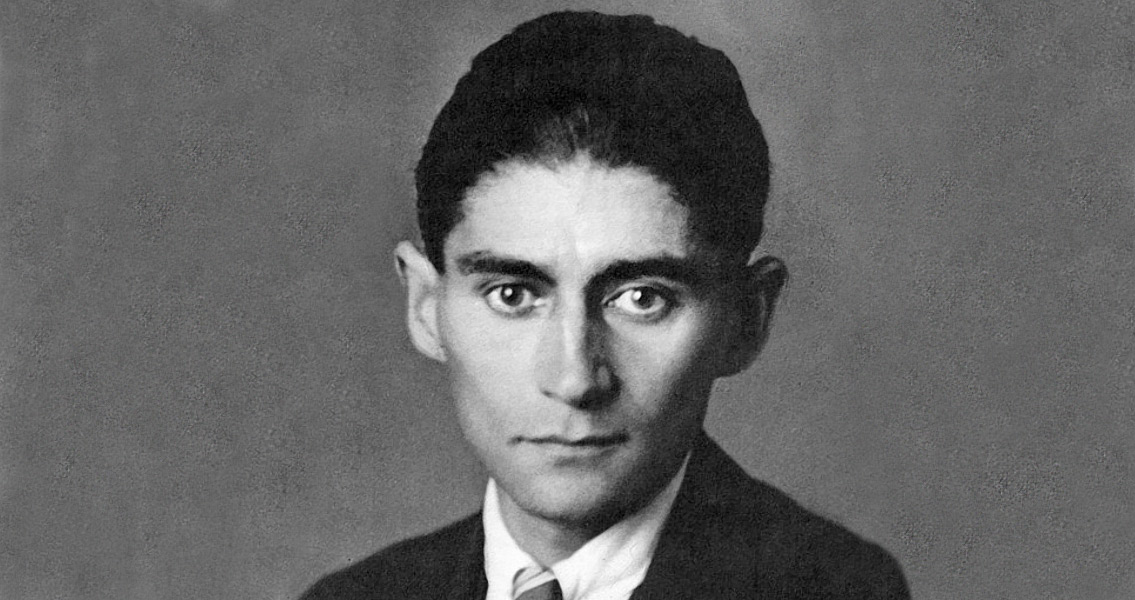<![CDATA[Days before the 132nd anniversary of his birth on the 3rd July, a long legal battle over the literary legacy of Franz Kafka finally came to an end. A court in Israel has awarded a rare collection of Kafka's manuscripts to the country's national library. Born in Prague in 1883, when the city was a part of the Austria-Hungarian Empire, Kafka is regarded as one of the most important writers of the twentieth century, as well as one of the most mysterious. Many of his most well known works were not published until years after his death. Raised in a German speaking Jewish family, Kafka endured a difficult and at times tragic childhood. His two younger brothers died in their infancy, bestowing on Kafka the pressures of being the only son in a family with three daughters. He endured a difficult relationship with his at times tyrannical father, who could not understand Kafka's dreams of becoming a writer. Kafka blamed many of his anxieties in adulthood on this tumultuous relationship. After receiving a doctorate in law Kafka worked as an insurance clerk. A series of promotions suggest that Kafka worked hard and was adept at his work, but his personal life was ravaged by insecurities and health problems connected to stress and depression. He also dedicated himself to his literary work, although only a tiny percentage of his writings were published in his life time and his celebrity status has only arisen in the years following his death. The controversy over the manuscripts can be traced back to events which occurred around the time of the writer's death in 1924. Kafka gave the manuscripts of his works to Max Brod, with strict instructions to burn them after he passed away. A writer himself, Brod was one of the most influential figures in Kafka's life. The two met in Prague's literary circles and held a long lasting friendship, with Brod encouraging Kafka to continue his writing. In many ways, Brod was pivotal in ensuring that some of Kafka's most famous works are available to modern readers. Brod didn't honour Kafka's wishes to destroy the unpublished works however, and instead kept the manuscripts. In 1939, following the rise of the Nazi Party in Eastern Europe, Brod fled Prague for Palestine and brought the manuscripts with him. In 1968 the collection was bequeathed to Brod's secretary, Esther Hoffe, with strict instructions to ensure Kafka's works were published, and to make provisions for them to be kept in a secure public institution following her death. Controversy started in 1973 when it was revealed that Hoffe had auctioned off several of the extremly valuable manusripts abroad. Following Hoffe's death in 2007, her two daughters began legal action claiming that they were now the rightful owners of the manuscripts. Since then the court case has continued, with the Israeli National Library arguing that Brod's initial request to Hoffe be honoured, and the documents handed over to them. Following a complicated trial and several appeals, the Israeli court has finally ordered Eva Hoffe, the last surviving daughter of Esther, to hand over the manuscripts. Kafka passed away on 3rd June, 1924. He had been suffering from tuberculosis since 1917, and had briefly moved to Berlin in 1923 to escape the influence of his overbearing family. By 1924 his condition had worsened and he returned to Prague. The Israeil National Library claims it will eventually post the collection of manuscripts online. ]]>
Kafka Controversy Resolved Before Anniversary of his Birth
